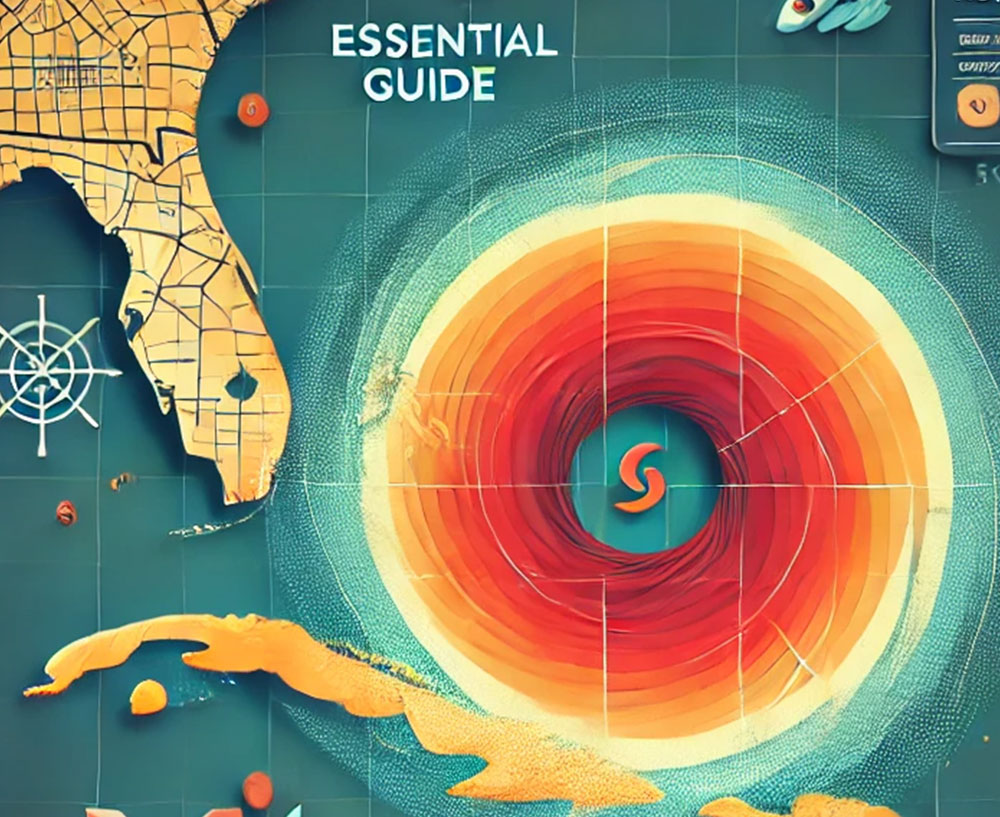Preparing for hurricane season is crucial, especially in regions like South Florida, where the impact can be significant. Here’s a comprehensive guide on how to prepare for the 2024 hurricane season:
1. Understand the Season
Hurricane season in South Florida runs from June 1st to November 30th. The peak period, when hurricanes are most likely to occur, is from August through October. Stay informed by regularly checking updates from the National Hurricane Center and local meteorological services.
2. Assess Your Risk
Evaluate your home and community’s vulnerability to storm surges, flooding, and wind. Consider your home’s construction type and location. If you live in an evacuation zone, have a plan for where you can go if an evacuation order is issued.
3. Create an Emergency Plan
Develop a clear, actionable emergency plan for you and your family. This should include:
- Evacuation routes and destinations: Know where to go and how to get there.
- Communication plan: Decide how you will stay in contact if separated.
- Special considerations: Plan for pets, elderly family members, or those with special needs.
4. Prepare an Emergency Kit
Your emergency kit should include:
- Basic supplies: Water (one gallon per person per day for at least three days), non-perishable food, a flashlight, a battery-powered or hand-crank radio, extra batteries, a first aid kit, and a manual can opener.
- Additional items: Medications, copies of personal documents (like insurance policies and identification), cash, and emergency contact information.
- COVID-19 supplies: Masks, sanitizer, and disinfectant, especially relevant if you need to go to a shelter.
5. Secure Your Home
Take steps to reduce damage:
- Reinforce windows: Use storm shutters or board up windows with plywood.
- Secure loose objects: Anchor objects that could be blown away or turned into projectiles.
- Check your roof and foundation: Ensure they are in good condition to withstand high winds and water.
6. Review Your Insurance
Make sure your insurance policies cover flood and wind damage. Understand your deductibles and limits. Keep digital copies of your policies in a safe, accessible place.
7. Stay Informed
Download apps from local government and emergency services for real-time alerts. Consider investing in a NOAA Weather Radio for official warnings.
8. Help Your Community
Check on neighbors, especially those who may need additional help like the elderly or disabled. Participate in community preparedness programs.
9. Plan for Pets
Have a plan for your pets. Keep a pet emergency kit ready, including food, water, medications, and vaccination records. Know which shelters or hotels are pet-friendly.






















